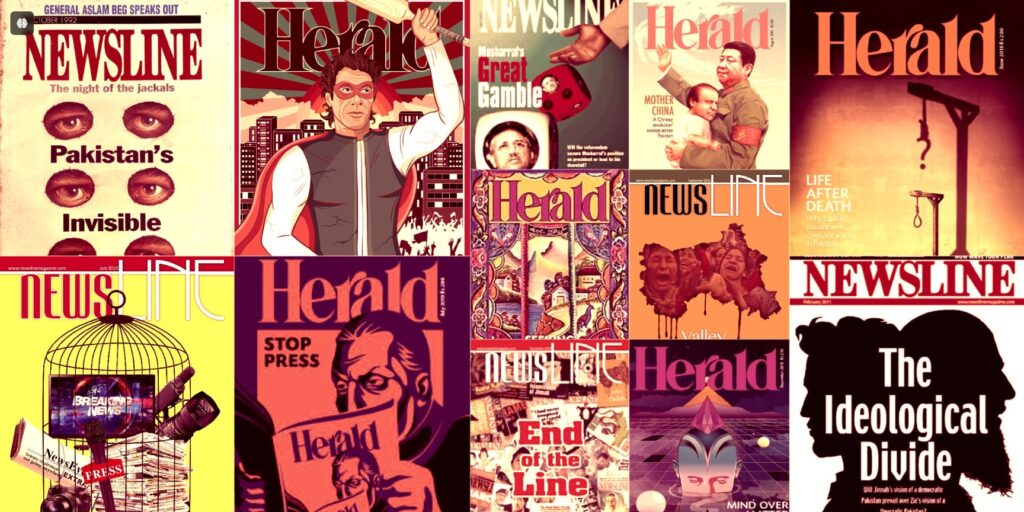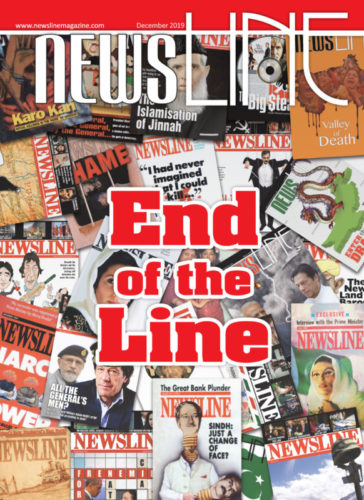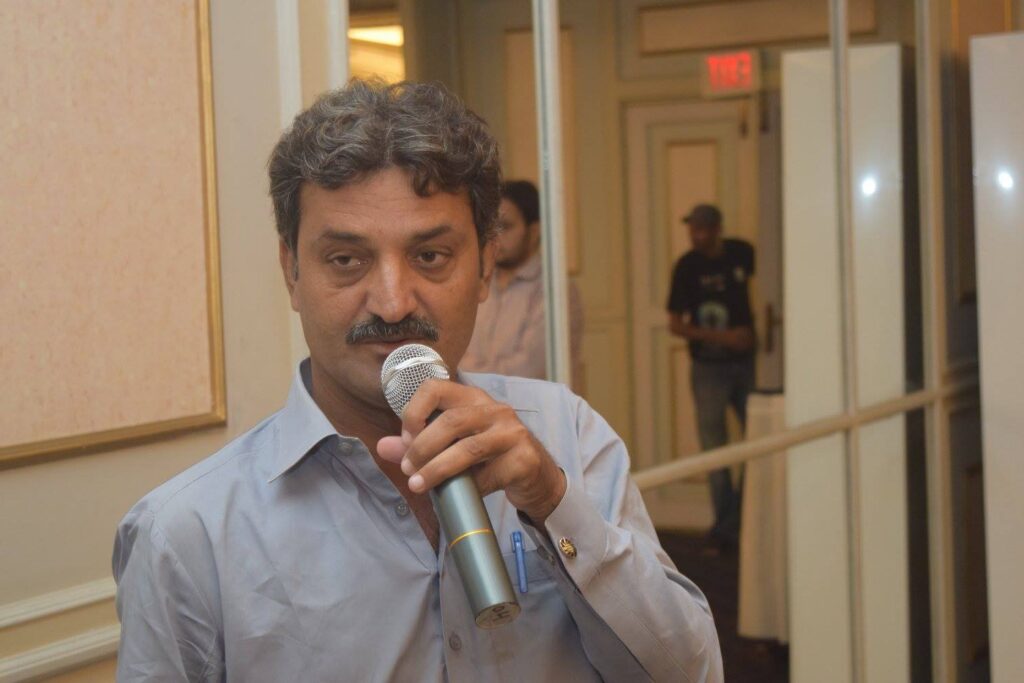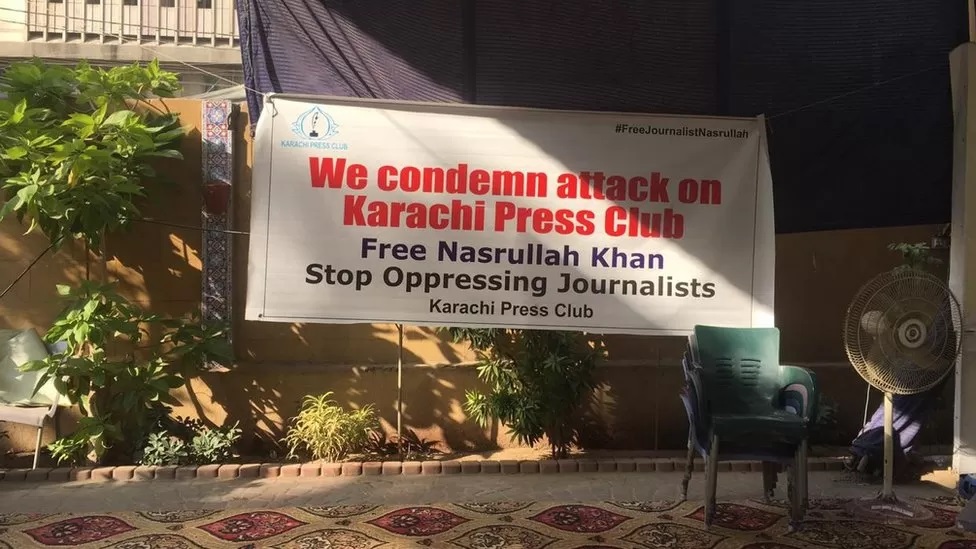By Shujauddin Qureshi
It was a shock for me when I read a post by my friend Afia Salam on Facebook this morning about the closure of the monthly news magazine Newsline. She quoted the editor of the magazine, Rehana Hakeem, saying, “Just to let all the wonderful and supportive people who were part of the Newsline journey and experience that began with its first issue on July 1, 1989, know that Newsline will be ending its memorable and eventful journey on November 30.
The Hum Network cites financial constraints as the reason for closing down the magazine. The December 2019 issue will be our last. Truly heartbreaking for all of us who began this journey with our dearest friend, mentor, and guide, Razia Bhatti. So sorry, Razia; we tried our best. Love to you, wherever you are, and all. Rehana.”
Demise of two monthlies—Newsline and Herala
The closure of Dawn Group’s Herald earlier this year marked a devastating blow to Pakistan’s media landscape, silencing a beacon of quality journalism. The publication, known for its in-depth reporting and fearless editorial stance, fell victim to a stifling environment where independent media is increasingly under threat.
A toxic combination of government pressure and corporate greed proved fatal. Anti-media policies designed to muzzle dissent and control narratives created an unsustainable operating environment. Simultaneously, the owners’ apparent prioritisation of profit over journalistic integrity contributed to the publication’s demise, leaving a void for discerning readers seeking nuanced and critical analysis.
The loss of Herald, following closely on the heels of other independent media outlets, is a stark reminder of the perilous state of press freedom in Pakistan. It underscores the urgent need to resist censorship, protect journalistic integrity, and prioritise quality reporting in an age of rapidly shrinking space for dissent.

The Newsline magazine witnessed ups and downs during its long journey since July 1988. The financial crisis had started long ago, and its management was changed. The ownership of Newsline was shifted to Hum Media Group, and its office was moved from the Clifton area to the main Hum TV building at I. I. Chundrigar Road.
I can recall the magazine witnessing backlash during the unruly government in Sindh by Jam Sadiq Ali (1990–1992), whose notorious Minister Irfan Khan Marwat had ordered to remove all the copies from stalls. Newsline had exposed the illegal actions of all the government; even during the military rule of General Pervaiz Musharraf, Newsline continued writing against government policies.
The monthly Newsline produced a lot of the best journalists. Zahid Hussain was among the founders, but the star reporters Hassan Mujtaba, Nafisa Shah, Mohammad Hanif, Ghulam Hasnain, and many more (I am sorry the list is quite long) were among the best writers. The magazine’s editorial staff and junior sub-editors played a key role in maintaining the quality of the content.
The ongoing media crisis has been further aggravated by an aloof attitude of the corporate mind, “Seth Media Owners,” and criminal silence and inaction by the media associations, including many factions of the Pakistan Federal Union of Journalists (PFUJ) and All Pakistan Newspapers Employees Confederation (APNEC). The tight noose by the government against electronic media through PEMRA has put the freedom of expression at stake and created further uncertainty among media workers. The government has not left any stone unturned to throttle the weaker media, despite the fact the media is already tamed. In such a suffocating environment, social media has emerged as a ray of hope.
My affiliation with Monthly Newsline dates back to 1998 when I first started writing as a contributor on business topics. Besides writing on economic issues, I also wrote on other topics like environment and development. Luckily, one of my features won the Reuters-IUCN Award for Environmental Journalists (Asia) in 1999. It was on the destruction of Manchhar Lake.
Photo courtesy: Himal Magazine, Nepal




